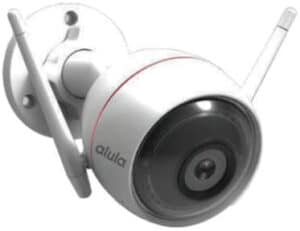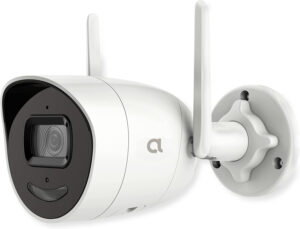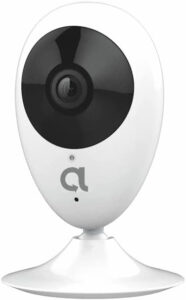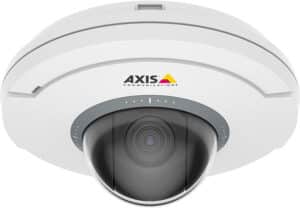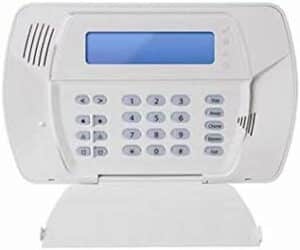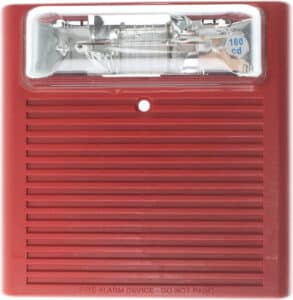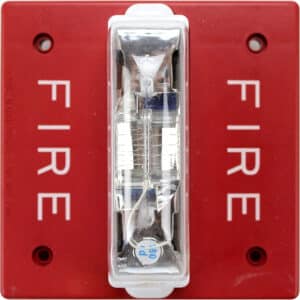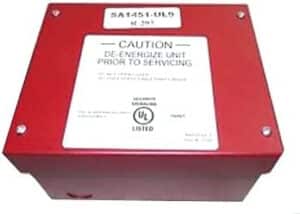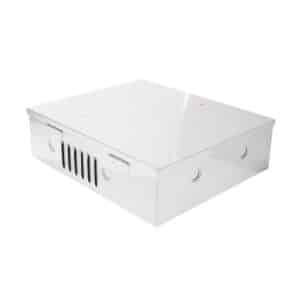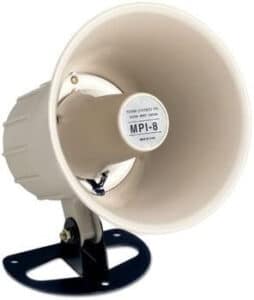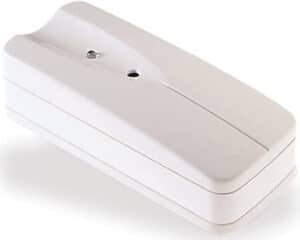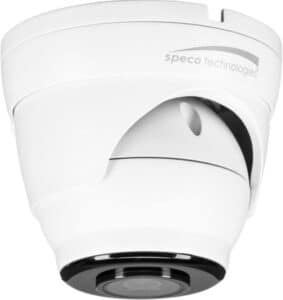How Much Does a Home Security System Cost
Home security has become a crucial aspect of every homeowner’s life. Installing an effective home security system is not only about safeguarding your valuables but also about providing a sense of safety and security to your loved ones. The right home security system can help ward off intruders, prevent thefts, and give you peace of mind. But before you can reap the benefits of a home security system, it is essential to understand how much it will cost you. In this comprehensive blog post, we’ll dive deep into the world of home security system costs, so you can make an informed decision that provides the level of protection your home deserves.
Table of Contents
How Much Does an Entry-Level Home Security System Cost?
When it comes to entry-level home security systems, the cost can vary depending on several factors. The most basic systems usually include an alarm panel, door and window sensors, and motion detectors. These systems are often wireless, which makes them easy to install and affordable. The security system cost for an entry-level system typically ranges from $100 to $300.
In addition to the equipment, you may also need to factor in the cost of professional installation. Some companies offer free installation as part of a package, while others charge a fee. Professional installation costs can range from $100 to $500, depending on the complexity of the system and your location.
While the initial cost of an entry-level home security system may be affordable, it’s important to keep in mind that these systems may not offer the same level of protection as more advanced options. Basic systems may not include features such as security cameras, smart home integration, or professional monitoring, which can provide additional peace of mind and improve the overall effectiveness of your security system.
Advanced Home Security Systems Cost: What’s Included and How Much You Need to Pay
Advanced home security systems offer a higher level of protection and often include additional features that can enhance the overall security of your home. These systems may include security cameras, smart home integration, and professional monitoring services. The security system cost for an advanced system can range from $500 to $2,000 or more, depending on the features and equipment included.
Security cameras are a popular addition to advanced home security systems, as they allow you to monitor your property in real-time and provide video evidence in case of a break-in. The cost of security cameras varies based on the type and quality of the camera, as well as the number of cameras you need. On average, security cameras can cost between $100 and $500 each.
Smart home integration means it allows you to connect your home security system to other smart devices, such as lights, locks, and thermostats. This can provide additional convenience and control over your home’s security. The cost of smart home integration varies depending on the devices you choose and the compatibility of your security system. Some systems may require additional equipment or subscriptions to enable smart home integration, which can increase the overall security system cost.
Professional monitoring services provide 24/7 monitoring of your home security system, alerting you and the authorities in case of an emergency. The cost of professional monitoring varies depending on the provider and the level of service offered. Monthly fees for professional monitoring can range from $15 to $60 or more.
Pros and Cons of a DIY Home Security System and Its Cost
DIY home security systems have become increasingly popular in recent years, thanks to their affordability and ease of installation. These systems typically include the same basic components as professionally installed systems, such as an alarm panel, door and window sensors, and motion detectors. However, DIY systems are often wireless and designed for easy installation by the homeowner, eliminating the need for professional installation.
The primary advantage of a DIY home security system is the cost. DIY systems are often more affordable than professionally installed systems, with costs ranging from $100 to $500, depending on the features and equipment included. Additionally, you won’t need to factor in the cost of professional installation, which can save you several hundred dollars.
However, there are also some drawbacks to consider when choosing a DIY home security system. One of the main disadvantages is the potential for installation errors. If you’re not confident in your ability to correctly install the system, you may compromise the effectiveness of your security. Additionally, DIY systems may not offer the same level of customer support and ongoing maintenance as professionally installed systems.
How Much Does Monthly Monitoring Service Cost for Home Security Systems?
Monthly monitoring service is an important aspect of home security, as it provides 24/7 monitoring of your system and alerts the authorities in case of an emergency. The cost of monthly monitoring service varies depending on the provider and the level of service offered. On average, monthly fees for monitoring service can range from $15 to $60 or more.
There are several factors that can influence the cost of monthly monitoring service, including the type of security system you have (wired or wireless), the level of service provided (basic or advanced), and whether or not you have a contract with your provider. Some providers offer discounts for customers who sign a long-term contract or bundle their home security system with other services, such as internet or cable.
When considering the cost of monthly monitoring service, it’s important to weigh the benefits against the expense. Professional monitoring can provide additional peace of mind and ensure that your home is protected 24/7, even when you’re not there. However, if you’re on a tight budget, you may need to consider alternative options, such as self-monitoring or a lower-cost provider.
Upfront Costs vs Ongoing Expenses: Which Type of Home Security System is More Cost-Effective?
When evaluating the cost of a home security system, it’s important to consider both the upfront costs and the ongoing expenses associated with maintaining the system. Upfront costs include the cost of the equipment and installation, while ongoing expenses include monthly monitoring fees, maintenance, and potential equipment upgrades or replacements.
In general, wired home security systems tend to have higher upfront costs, as they require professional installation and may include more expensive equipment. However, these systems often have lower ongoing expenses, as they may not require monthly monitoring fees or frequent equipment replacements.
Wireless home security systems, on the other hand, typically have lower upfront costs, as they are easier to install and may include more affordable equipment. However, these systems may have higher ongoing expenses, as they often require monthly monitoring fees and may need more frequent equipment upgrades or replacements.
To determine which type of home security system is more cost-effective for your needs, consider your budget and your long-term security goals. If you’re willing to invest in a higher upfront cost for a more robust and reliable system, a wired system may be the better option. If you’re more concerned with affordability and flexibility, a wireless system may be a better fit.
How Your Home’s Size Affects the Cost of a Home Security System
The size of your home can have a significant impact on the cost of a home security system. Larger homes typically require more equipment, such as additional door and window sensors, motion detectors, and security cameras, which can increase the overall security system cost.
In addition to the cost of equipment, larger homes may also require more extensive installation, which can increase the cost of professional installation. If you have a multi-story home or a home with multiple entrances, you may need to factor in the cost of additional wiring, sensors, and labor.
When considering the cost of a home security system for your home, it’s important to balance the need for comprehensive coverage with your budget. While it may be tempting to cut corners and opt for a less expensive system, doing so may compromise the effectiveness of your security and leave your home vulnerable to break-ins.
The Cost of Integrating Smart Home Devices into Your Home Security System
Smart home integration is becoming increasingly popular in home security systems, as it allows you to connect your security system to other smart devices in your home, such as lights, locks, and thermostats. This can provide additional convenience and control over your home’s security, as well as help you save energy and reduce your utility bills.
The cost of integrating smart home devices into your home security system depends on the devices you choose and the compatibility of your security system. Some systems may require additional equipment or subscriptions to enable smart home integration, which can increase the overall security system cost.
On average, the cost of smart home devices ranges from $50 to $500 or more, depending on the type and quality of the device. Popular smart home devices include smart locks, smart lights, and smart thermostats, all of which can be controlled remotely through a smartphone app or voice commands.
When considering the cost of smart home integration, it’s important to weigh the benefits against the expense. While integrating smart home devices can provide additional convenience and control, it may not be necessary for all homeowners. If you’re on a tight budget or don’t have a strong interest in smart home technology, you may want to prioritize other aspects of your home security system, such as professional monitoring or security cameras.
A Deep Dive into the Hidden Costs of Home Security Systems
While the upfront costs of a home security system may seem straightforward, there are often hidden costs that can significantly impact the overall security system cost. These hidden costs can include equipment upgrades or replacements, maintenance fees, and potential penalties for early contract termination.
Equipment upgrades or replacements may be necessary if your system becomes outdated or if you want to add additional features or devices to your security system. The cost of equipment upgrades or replacements can range from $50 to $500 or more, depending on the type and quality of the equipment.
Maintenance fees are another potential hidden cost, as some providers may charge for ongoing maintenance or repairs to your system. These fees can vary depending on the provider and the level of service offered but can range from $50 to $200 or more per year.
If you have a contract with your home security provider, you may also need to be aware of potential penalties for early termination. Some providers charge hefty fees for customers who want to cancel their service before the end of their contract, which can add to the overall security system cost. Be sure to read the fine print and understand any potential penalties before signing a contract with a provider.
How Home Security System Cost Varies by Location and Provider
The cost of a home security system can vary significantly depending on your location and the provider you choose. Factors such as local labor rates, equipment costs, and provider competition can all impact the overall security system cost.
In general, home security system costs tend to be higher in urban areas, where labor rates and equipment costs are often higher. However, these areas may also have more competition among providers, which can lead to lower prices and better deals for consumers.
When choosing a home security provider, it’s important to consider more than just the cost of the system. The quality of the equipment, the level of customer service, and the reputation of the provider are all important factors to take into account. Be sure to research multiple providers and compare their offerings, prices, and customer reviews before making a decision.
Tips for Choosing the Right Home Security System for Your Budget and Needs
With so many options available, it can be difficult to choose the right home security system for your budget and needs. To help make the decision easier, here are some tips to keep in mind:
-
Determine your budget: Before you start shopping for a home security system, determine how much you can realistically afford to spend. Consider both the upfront costs and the ongoing expenses, such as monitoring fees and maintenance costs.
-
Assess your security needs: Consider the size of your home, your location, and your overall security concerns when choosing a home security system. For example, if you live in a high-crime area, you may need a more advanced system with professional monitoring and security cameras.
-
Research multiple providers: Don’t just choose the first provider you come across. Research multiple providers, compare their offerings and prices, and read customer reviews to get a better understanding of their reputation and customer service.
-
Consider professional installation and monitoring: While DIY options may seem more affordable, professional installation and monitoring can provide additional peace of mind and ensure that your system is installed correctly and functioning properly.
-
Look for bundled services: Some providers offer bundled services, such as internet or cable, which can help you save money on your home security system. Be sure to read the fine print and understand any potential fees or penalties before signing up for bundled services.
-
Don’t compromise on quality: While it may be tempting to choose a less expensive system, compromising on quality can leave your home vulnerable to break-ins. Choose a system that offers the features and level of protection you need, even if it means spending a little more upfront.
Bundling Your Home Security System with Other Services: Is It Worth the Cost?
As mentioned earlier, some home security providers offer bundled services, such as internet or cable, which can help you save money on your overall home expenses. While bundling may seem like a good deal, it’s important to consider the overall value and potential drawbacks before making a decision.
Bundled services can help you save money on your home security system, as well as other household expenses. However, bundling can also limit your options and make it difficult to switch providers if you’re not satisfied with the service. Additionally, you may be required to sign a long-term contract, which can result in penalties for early termination.
When considering bundled services, be sure to weigh the potential benefits against the long-term costs and limitations. If you’re happy with the provider and the services offered, bundling can be a good way to save money on your overall expenses.
The Real Cost of Home Security: Factoring in Peace of Mind and Insurance Savings
While the cost of a home security system may seem expensive upfront, it’s important to consider the long-term benefits and potential savings. Home security systems can provide additional peace of mind, as well as potential insurance savings.
Having a home security system in place can deter break-ins and burglaries, which can help you avoid potential property damage and loss. Additionally, many insurance providers offer discounts for homes with a security system in place, which can help offset the cost of the system over time.
When considering the real cost of home security, be sure to factor in the potential savings and benefits, as well as the expense. While the initial cost may seem high, the long-term benefits and peace of mind can be invaluable.
Negotiating Home Security System Prices: How to Get the Best Deals
When shopping for a home security system, don’t be afraid to negotiate prices and ask for deals. Many providers are willing to offer discounts or promotions to new customers, especially during certain times of the year or for specific packages.
To negotiate prices effectively, do your research and come prepared with information about other providers and their offerings. Be polite but firm in your negotiations, and be willing to walk away if you’re not satisfied with the deal.
Additionally, consider bundling your services or signing a long-term contract to potentially save money on your overall expenses. However, be sure to read the fine print and understand any potential fees or penalties before signing a contract.
How Often Should You Update Your Home Security System and How Much Would It Cost?
Even the most advanced home security systems will eventually become outdated and require updates or replacements. The frequency of updates will depend on the type of system you have and the level of technology involved.
As a general rule, it’s a good idea to update your home security system every 3-5 years to ensure that it’s functioning properly and providing the level of protection you need. The cost of updates can vary depending on the type of system you have and the extent of the updates required.
In some cases, updates may be as simple as upgrading the firmware on your devices or replacing a few sensors. In other cases, updates may require a complete overhaul of your system, which can be more expensive. However, investing in regular updates can help ensure that your system is up-to-date and provides the best possible protection for your home.
Conclusion
In conclusion, we’ve learned that the cost of a home security system varies depending on factors such as features included, system complexity, and the size of your house. We’ve also explored the pros and cons of opting for a DIY home security system, monthly monitoring costs, as well as hidden expenses. While the upfront cost may seem like a significant investment, it pales in comparison to the peace of mind and insurance savings you’ll receive in the long run.
To ensure you’re getting the best deals for your home security system, it’s essential to research and compare providers’ prices and negotiate prices. Don’t forget to prioritize the safety of your loved ones and assets at home, as nothing is more valuable than that.
If you’re looking for an affordable and user-friendly DIY home security system, Xcessory Zone e-commerce products are your best bet. Their wide selection of top-quality security systems, including CCTV cameras, smart doorbells, and motion sensors at reasonable prices, will give you peace of mind and ensure the safety of your home.
Don’t wait any longer. Invest in a home security system today and protect your home and loved ones. Shop at Xcessory Zone’s e-commerce store and take the first step towards a safer home.
FAQs
What factors affect the cost of a home security system from a home security company?
The cost of a home security system is dependent on a number of things including the type of system you choose, the home security equipment and devices you decide to install, and the level of monitoring you require. Some providers also offer additional services such as installation and maintenance, which can add extra costs to the overall price.
Are home security systems worth the investment?
Installing a home security system, whether it’s a wired system or a wireless alarm system, is definitely worth the investment. They not only provide a deterrent to potential burglars but also offer peace of mind to homeowners knowing that their homes are being monitored and protected.
What are some of the best home security systems on the market?
The best home security system for you will depend on your personal needs and budget. However, some of the top providers include ADT, Vivint, Frontpoint, and SimpliSafe. If you are also looking for a DIY home security system, Xcessory Zone has a lot of security products to offer.
Can I install a home security system on my own or should I hire a professional?
While a DIY installation might seem like a cheaper option, it’s recommended to hire a professional to ensure that the system is installed correctly. This will help avoid any potential malfunctions and provide better overall protection for your home.
How much does monitoring service cost for home security systems?
The cost of monthly monitoring for a home security system can vary depending on the provider and the level of service you require. Typically, monitoring services range from $20 to $50 per month.
Are there any hidden home security costs associated with home security systems?
Yes, there can be hidden costs with home security systems such as installation fees, added equipment costs, and cancellation fees. It’s important to read the contract thoroughly before signing up for any services to avoid any unexpected expenses.
Is it better to choose wired systems or wireless alarm systems for home security?
The choice between a wired system or a wireless alarm system depends on personal preference. Wired systems may be more reliable, but they can be more expensive to install. On the other hand, wireless systems are more flexible and easy to install, but they can be more susceptible to hacking. It’s best to weigh the pros and cons and choose the option that works best for your home and budget.
Meet Our Partners!




